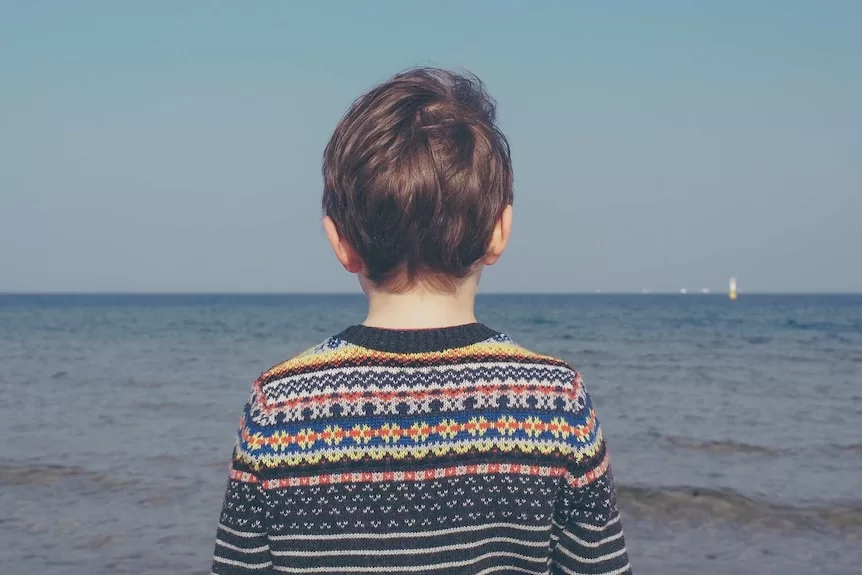Experts are urging parents to reach out to their children to help them process the horrific scenes that unfolded at Bondi Junction at the weekend.
As with any breaking news story there has been rolling coverage of the stabbings, with upsetting details on social media, television news and online media outlets.
For parents, a key element of the tragedy — that it took place at a suburban shopping centre — has put a regular family venue at the forefront of their own and their children’s minds.
So how can you tell if your child is struggling to process the events and what is the best way to support them?
How to tell if your child is struggling to cope
The key thing to look for, according to experts, is a change in your child’s behaviour.
Michael Burge, the director of the Australian College of Trauma Treatment, said this could include your child becoming more withdrawn, being reluctant to go out, asking lots of questions, acting out aggressively or having sleep issues.
“You’ll notice because there will be a change of behaviour — some parents are well and truly tuned in,” he said.
Kids Helpline national director Leo Hede said children who become withdrawn might be on their phones more.
“Depending on their age they might be caught up in some doomscrolling — keep an eye out.”
How do you respond to your child’s concerns?
The best way to help children process these events is to be available to them and be ready to ask them about it.
Leo Hede said it was important to take the time to be present and not dismiss children’s fears and concerns.
“Sometimes we can default to minimising. Really listen to what children are saying and respond encouragingly to their emotions,” he said.
“Reassure them it’s okay to be upset, it’s okay to have emotions.
“You want to establish that they are physically and emotionally safe but provide space to answer their questions honestly.”
Leo Hede said don’t settle for an “Are you okay?” and “Fine” interaction.
“Do a bit of digging: say, ‘Tell me what fine is like for you at the moment?'”
Mr Burge also cautioned parents against overreacting or showing too much anxiety themselves, because it could be contagious.
“Just try and maintain a balanced approach. Focus on being responsive.
“Encourage them to come and talk to you about anything that may distressing for them.”
How do you address specific details?
With the Bondi event, there are specific details that may be particularly worrisome to children.
The first is that the shocking events took place in a shopping centre, a regular family venue and community hub for many families.
Mr Burge said some families may choose to shop at smaller local centres for a small time, while others may choose not to let it stop them.
“Just reassure children they are perfectly safe and this is an unusual occurrence.”
Leo Hede suggested acknowledging that there was an awful thing that happened “but there are shopping centres all around Australia that are safe and police are doing even more now to help us to be safe”.
A further concern is the many graphic details that are emerging of what took place.
“If children are getting alarmed, reassure them these things don’t happen too often and give them space to ventilate their feelings,” Mr Burge said.
There’s also discussion of the perpetrator’s history of mental health issues. Leo Hede cautioned parents against dismissing it as the work of a “madman” or “crazy person”.
“Finding the right language can be hard.
“Perhaps say, ‘These events are very rare, our police are there to protect us after events like this.'”
Mr Burge said it was important people with mental health issues weren’t stigmatised by the events and continued to seek help where required.
Should you limit news coverage?
Mr Burge said for older children it was inevitable that they would become aware of the tragedy.
“With social media and internet, they hear what’s going on and that really does threaten their sense of safety and wellbeing and they can be affected by that,” he said.
“If it’s too much, use a reassuring tone to suggest they perhaps shouldn’t listen to any more [news], or they don’t need to listen to it. Just make sure kids feel like they are living in a generally safe world.
“It’s important carers protect children from too much information but also prepare them beforehand.”
Mr Burge said every family handled it differently, but some may choose to turn off the television for a few weeks while others may simply choose to limit it.
“When these events happen you amp up your monitoring of what they’re watching. I’d be inclined to limit the news programs,” he said.
“Try and get them to watch something else in the meantime.”
Leo Hede said try and create some space for activities away from the television, including going outside, crafts, and playing with friends and pets.
“Be mindful of when the TV is on and you might be on the phone as well — that role modelling is important.”
How does it affect past trauma?
Mr Burge said it was well-established that events such as these could trigger past traumas and parents of traumatised children should be extra alert for signs.
“It’s normalising that it’s okay to have some emotions around this even if we weren’t directly involved and reach out for help if needed.”
What if you or your child were at the centre?
Mr Burge said anyone dealing directly with trauma should see their GP who would be able to direct them to the best treatment services for them.
Leo Hede said Kids Helpline’s trained counsellors were also on hand to help and encouraged parents to set their kids up with one of the phone or webchat help services if they were struggling







